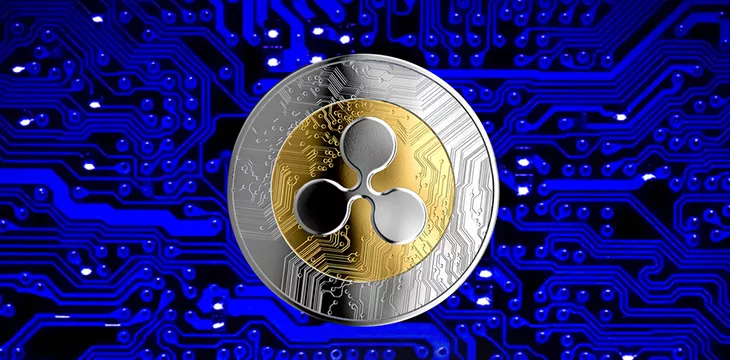|
Getting your Trinity Audio player ready...
|
The federal judge overseeing SEC v Ripple Labs has permitted the U.S. Securities and Exchange Commission (SEC) to request an appeal over last month’s decision that programmatic sales of XRP and distributions in exchange for goods and services did not amount to securities.
This means that the summary judgment order—which was a split decision based on a finding that sales of XRP via exchanges did not amount to securities because buyers could not know that their money was going to Ripple—is set for another round of argument. In granting parts of Ripple’s summary judgment application, the court distinguished buyers on exchanges from institutional buyers who purchased directly from Ripple Labs.
The SEC wrote to District Judge Analisa Torres on August 9, arguing that they should be allowed to make arguments on whether or not they can appeal last month’s summary judgment order:
“…there is ‘substantial ground for difference of opinion’ regarding these two questions…As noted, one court in this District has expressly ‘reject[ed]’ the Order’s approach as to Programmatic Sales, reasoning that “Howey makes no such distinction between purchasers” for purposes of determining whether investors had reasonable expectations of profits from the issuer’s efforts.”
The case referred to by the SEC is that against Do Kwon and Terraform Labs, where the Judge expressly disagreed with the reasoning used to let Ripple off the hook for so-called programmatic sales.
“That a purchaser bought the coins directly from the defendants or, instead, in a secondary re-sale transaction has no impact on whether a reasonable individual would objectively view the defendants’ actions and statements as evincing a promise of profits based on their efforts,” the federal judge stated in that case.
Ripple protested in response, writing to Judge Torres, saying that the difference in opinion between the courts is illusory, acknowledging that the court in Terraform Labs disagreed with the reasoning in Ripple but saying that the conflicting decisions were fact-based and thus did not represent a split over the Howey rule itself.
Judge Torres disagreed with Ripple: on August 17, she granted the SEC’s request and set several deadlines for the court to hear the argument on whether or not an appeal should be permitted.
The SEC is due to file its formal motion on August 18. Ripple must respond by September 1, and the SEC’s final reply is due by September 8.
The Ripple dispute
The SEC’s case against Ripple has been dragging on for years. Though last month’s summary judgment order was celebrated as a resounding victory by Ripple and its fans, the truth is far more nuanced. That order was in response to motions for summary judgment by both the SEC and Ripple, with both sides arguing that the case should be resolved in their favor without a trial.
The three elements of XRP sales at issue in the case are:
- The institutional sales
- So-called programmatic sales, referring to sales of XRP on exchanges in ‘blind’ transactions where the purchasers do not know from whom they are purchasing XRP
- Other distributions of XRP made in exchange for goods and services
It was the SEC’s claims regarding the programmatic sales and distributions which Judge Torres struck out on summary judgment. The SEC is also pursuing charges directly against Ripple co-founders Brad Garlinghouse and Chris Larsen for allegedly illegally offering unregistered securities; those charges similarly survived the summary judgment order and will be headed for trial sometime in Q2 2024.
Far from being a fatal blow to the SEC’s case against Ripple, the summary judgment ruling at most reduces the scope of that eventual trial. And if the disputed interpretation of Howey, as demonstrated by the Terraform Labs ruling, is any indication, even that scant victory is in jeopardy of being undone.
Another underreported element of both Torres’ summary judgment order in the Ripple case and the conflicting Terraform decision is that both judges declined to endorse Ripple’s fair notice defense. A defendant generally has a defense to accusations of lawbreaking if they can prove they lacked fair notice that their conduct violated the law. Ripple, Terraform, and many other digital asset defendants have tried their luck with this defense—to no avail. In the Ripple summary judgment order, Judge Torres said that Howey did, in fact, ‘set forth a clear test’ for what constitutes an investment contract and, therefore, a security and that it was designed to apply to novel fact scenarios. The SEC’s approach, Judge Torres said, was consistent.
Next steps
Both parties will have a chance to argue whether the SEC is entitled to file an appeal this month. Regardless of the outcome of that issue, the court expects SEC v Ripple to go to trial sometime in Q2 of 2024.
Follow CoinGeek’s Crypto Crime Cartel series, which delves into the stream of groups—from BitMEX to Binance, Bitcoin.com, Blockstream, ShapeShift, Coinbase, Ripple,
Ethereum, FTX and Tether—who have co-opted the digital asset revolution and turned the industry into a minefield for naïve (and even experienced) players in the market.

 02-18-2026
02-18-2026 




